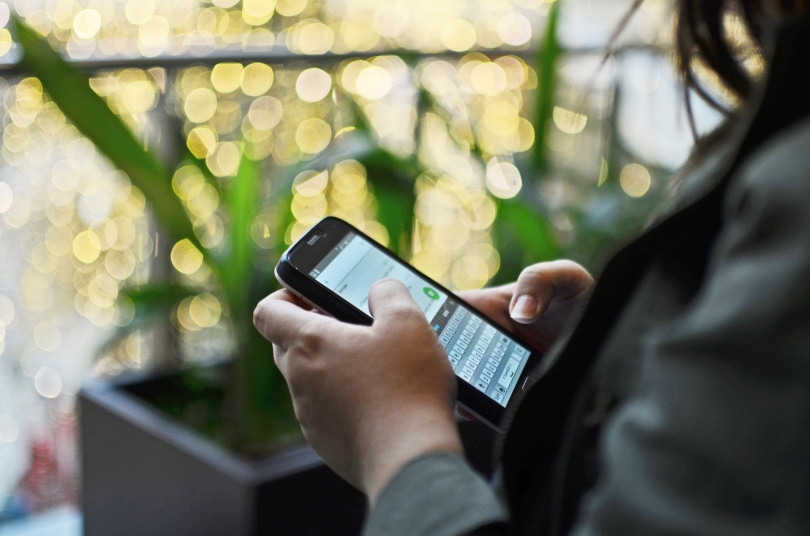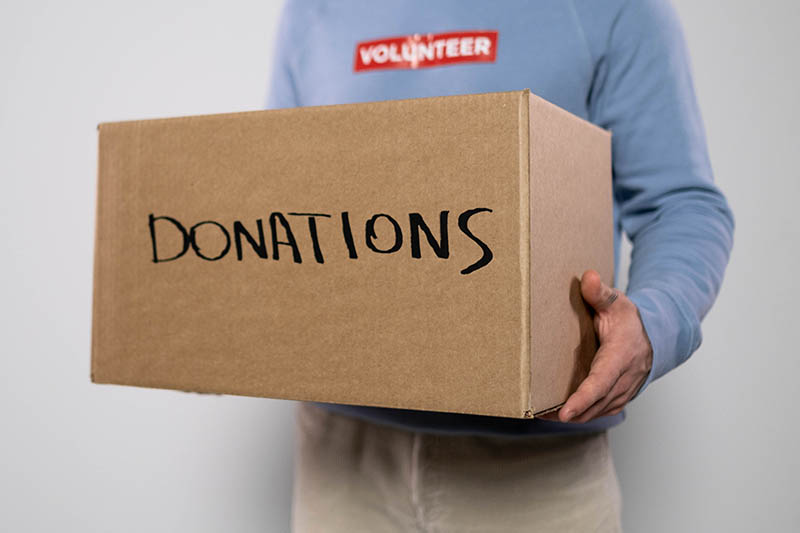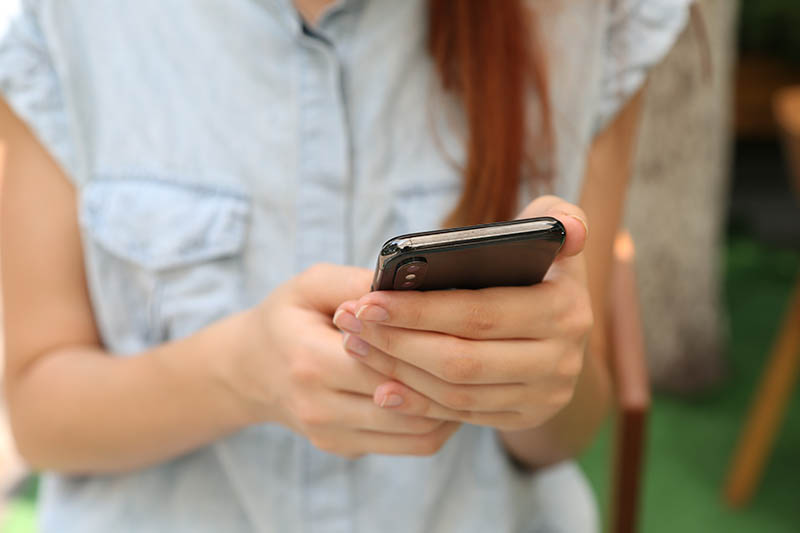How to Recycle a Cell Phone: 6 Great Tips
-
Pete Ortiz
- Last updated:

No matter how savvy we are with our electronics, it seems like nobody knows how to get rid of their old devices. Experts predict consumers will toss a whopping 5.3 billion cell phones in 2022, opting for the trash over more eco-friendly options by an overwhelming majority.
A low cell phone recycling rate1 is made worse by a notable lack of excuses. Recycling cell phones reduces CO2 emissions, protects the environment, improves the economy, and saves consumers money. And while the blue bin won’t help when you’re ready to ditch your device, you’ll be surprised how many people in your area will help you recycle it.
You can’t fix the world’s cell phone disposal problem alone, but you can do your part by making smarter decisions with your unused electronics. See how easy it is to recycle your old cell phones and start making a guaranteed impact today!
The 6 Best Ways to Recycle (or Reuse) an Old Cell Phone
1. Talk to Your Service Provider
Your cell phone service provider can help you recycle an old cell phone by suggesting local drop-off options. Most cell phone services, including Verizon, AT&T, T-Mobile, and Sprint, have trade-in programs in the store for convenient exchanges, while companies like Apple and Samsung can supply a credit for old mobile phones. Free mail-in programs from companies like LG add convenience, though they often don’t offer money back.

2. Find a Cell Phone Drop-Off Site
Electronics recycling organizations provide a convenient way to recycle old devices with drop-off kiosks. Call2Recycle has numerous locations in various stores across the country. You can also request mail-in boxes to send out phones, single-use batteries, and rechargeable batteries.
While Call2Recycle accepts phones of all ages and conditions, EcoATM goes one step further by paying for newer phones in decent shape. You must be 18 with a valid ID to use the machines, which you can find in various supermarkets and retailers. EcoATM doesn’t offer money for every phone, but it’s no less convenient or eco-friendly than Call2Recycle’s system. It also accepts tablets and MP3 players.
For more resources, Earth911 maintains a database of drop-off locations for mobile phones and over 350 other recyclable materials. Greener Gadgets also provides a drop-off site locator.
3. Sell Your Old Phone Online
Numerous online services will buy your old phone from you. BuyBack World, one of the most prominent options, offers upfront quotes and free shipping options for new, used, and broken devices. Depending on the condition and model, you’ll receive a certain dollar amount within days via check, prepaid card, PayPal, or direct deposit.
For a comprehensive list of online offers, check out SellCell. The service asks for the model and condition of your old devices and supplies you with an exhaustive list of selling options.

4. Drop Off at Electronics Retailers
Best Buy and Staples will be more than happy to take your old phones off your hands as part of their recycling projects. Home improvement stores like Lowe’s and Home Depot also partner with recycling groups to host their programs in-store, as does Goodwill. Many of these organizations will also appear in your searches through EcoATM and Call2Recycle.
5. Donate Your Old Cell Phone
If your cell phone is in good condition but doesn’t offer much cashback value, consider donating it to others in need. Local shelters, senior centers, rec centers, and charities will take old devices to supply to underprivileged and at-risk individuals.
Other organizations like World Computer Exchange provide a mail-in option if you don’t have a local organization where you can donate your cell phone. The WCE offers a chance to reduce global e-waste while supporting youths in developing countries. The group takes old cell phones with chargers alongside computers, tablets, recording devices, and digital storage tools.
Cell Phones for Soldiers is a non-profit that will recycle your old phone. Proceeds go toward minutes for deployed troops to call home and emergency funding for veterans. The 911 Cell Phone Bank, meanwhile, can refurbish serviceable devices, repurposing them to equip vulnerable individuals around the country with emergency cell phones.

6. Reuse Old Cell Phones
Getting a new phone doesn’t mean you have to get rid of your old one, especially when recycling options are few and far between. Finding a new use for an old machine will keep it out of the landfill and save you money by keeping you from having to buy a new device.
Use your old phone as an alarm clock, camera, MP3 player, or starter tablet for the kids. If you can still get some use out of them, you don’t have to feel bad about holding onto your aged devices.
Do I Need to Reset My Phone Before Recycling?
Many cell phone drop-off providers and recyclers recommend resetting your device and removing any personal data before recycling it. Although most will take precautions with sensitive information, playing it safe ahead of time will prevent any unexpected and avoidable issues.
Performing a factory reset is essential before recycling your phone. You should also remove your SIM card and memory cards, sign out of any accounts, and back up your data on the cloud or a separate device.
The Importance of Recycling Cell Phones
The world generated over 57 million tons of electronic waste in 2021, and the current trends indicate that number will only grow in the foreseeable future. The WEEE projects a 3–4% increase in electronic waste generation as global demand for electronics rises, estimating roughly 74 million metric tonnes of e-waste by 2030.
America is contributing more than its fair share to the problem. The U.S. ditched 2.7 million tons of old electronics in 2018 but recycled only 38.5%, sending over 1.6 million tons to the dump. At the center of this mass of electronic trash are the 416,000 cell phones Americans throw away daily, resulting in over 150 million hitting the garbage dump each year.
In the landfill, the plastics and assorted metal components from electronics begin a slow and hazardous breakdown process. Electronics account for over 40% of the heavy metals in landfills, such as arsenic, lead, and mercury. Carcinogens, hormone disruptors, and other toxins contaminate soil and water systems, poisoning plants and wildlife before finding their way back to people in the food we eat.

Cell Phone Recycling and Resources
The ecological impact is eye-opening, but it’s hardly the only downside to not recycling. Although they’re terrible for the planet, cell phones are a literal goldmine for manufacturers.
For every million cell phones recycled, manufacturers can extract nearly 36,000 pounds of valuable metals, including gold, silver, palladium, and copper. By the WEEE’s estimate, the world tossed $57 billion worth of recoverable materials in old cell phones in 2019.
Keeping these resources out of the production cycle means manufacturers have to rely on mining virgin materials, which isn’t only less beneficial than recycling from an economic standpoint but also more detrimental to the environment. Most of the CO2 emissions (up to 95%) stemming from a cell phone over two years is attributable to the mining of rare resources.
When you consider the impact of mining, the issue moves beyond the choice to toss an old cell phone in the trash. Hoarding becomes equally problematic. The average household contains 74 e-products, of which 13 are unused or broken. And though they’re not piling up in the landfill, those useless devices are also not re-entering the production cycle.
With a 7.3% CAGR through 2029, the smartphone market continues expanding, and production will only ramp up further. Without the benefit of old mobile phones, including those gathering dust on a shelf in the house, manufacturers will depend on raw materials to meet demand. Unless you upcycle it to prevent a future electronics purchase, the eco-friendly option is to recycle your unused cell phone.
Final Thoughts
Cell phones may not sport the chasing arrows, but they’re no less worthy of a recycling effort. Manufacturers win financially when they use recycled cell phone materials, so they’re willing to work harder to process them responsibly. Recycling a cell phone isn’t as challenging as you may think, and you can feel good that every device you recycle helps the planet and potentially another person in need.
Featured Image Credit: afra32, Pixabay
Contents


